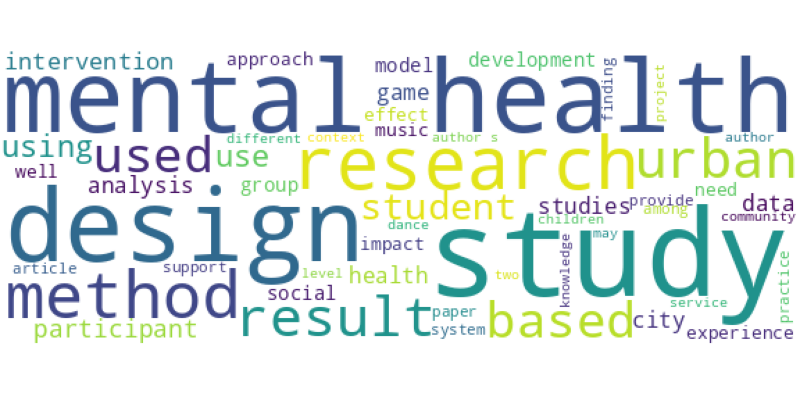| Id | 2856 | |
| Author | Levy K.; Garn J.V.; Cumbe Z.A.; Muneme B.; Fagnant-Sperati C.S.; Hubbard S.; Júnior A.; Manuel J.L.; Mangamela M.; McGunegill S.; Miller-Petrie M.K.; Snyder J.S.; Victor C.; Waller L.A.; Konstantinidis K.T.; Clasen T.F.; Brown J.; Nalá R.; Freeman M.C. | |
| Title | Study design and rationale for the PAASIM project: a matched cohort study on urban water supply improvements and infant enteric pathogen infection, gut microbiome development and health in Mozambique | |
| Reference | Levy K.; Garn J.V.; Cumbe Z.A.; Muneme B.; Fagnant-Sperati C.S.; Hubbard S.; Júnior A.; Manuel J.L.; Mangamela M.; McGunegill S.; Miller-Petrie M.K.; Snyder J.S.; Victor C.; Waller L.A.; Konstantinidis K.T.; Clasen T.F.; Brown J.; Nalá R.; Freeman M.C. Study design and rationale for the PAASIM project: a matched cohort study on urban water supply improvements and infant enteric pathogen infection, gut microbiome development and health in Mozambique,BMJ Open 13 3 |
|
| Link to article | https://www.scopus.com/inward/record.uri?eid=2-s2.0-85149268268&doi=10.1136%2fbmjopen-2022-067341&partnerID=40&md5=1fd8d7b57d61da93a9a4942ed786f2dd |
|
| Abstract | Introduction Despite clear linkages between provision of clean water and improvements in child health, limited information exists about the health impacts of large water infrastructure improvements in low-income settings. Billions of dollars are spent annually to improve urban water supply, and rigorous evaluation of these improvements, especially targeting informal settlements, is critical to guide policy and investment strategies. Objective measures of infection and exposure to pathogens, and measures of gut function, are needed to understand the effectiveness and impact of water supply improvements. Methods and analysis In the PAASIM study, we examine the impact of water system improvements on acute and chronic health outcomes in children in a low-income urban area of Beira, Mozambique, comprising 62 sub-neighbourhoods and ∼26 300 households. This prospective matched cohort study follows 548 mother-child dyads from late pregnancy through 12 months of age. Primary outcomes include measures of enteric pathogen infections, gut microbiome composition and source drinking water microbiological quality, measured at the child's 12-month visit. Additional outcomes include diarrhoea prevalence, child growth, previous enteric pathogen exposure, child mortality and various measures of water access and quality. Our analyses will compare (1) subjects living in sub-neighbourhoods with the improved water to those living in sub-neighbourhoods without these improvements; and (2) subjects with household water connections on their premises to those without such a connection. This study will provide critical information to understand how to optimise investments for improving child health, filling the information gap about the impact of piped water provision to low-income urban households, using novel gastrointestinal disease outcomes. Ethics and dissemination This study was approved by the Emory University Institutional Review Board and the National Bio-Ethics Committee for Health in Mozambique. The pre-analysis plan is published on the Open Science Framework platform (https://osf.io/4rkn6/). Results will be shared with relevant stakeholders locally, and through publications. © Author(s) (or their employer(s)) 2023. Re-use permitted under CC BY-NC. No commercial re-use. See rights and permissions. Published by BMJ. |
|
| Keywords | Child; Cohort Studies; Ethics Committees, Research; Female; Gastrointestinal Microbiome; Humans; Infant; Mozambique; Pregnancy; Prospective Studies; Water Supply; drinking water; adverse outcome; age; Article; child development; child growth; childhood mortality; cohort analysis; comparative study; controlled study; diarrhea; enteropathogen; environmental exposure; environmental impact; female; health impact assessment; household; human; infant; intestine flora; intestine function; intestine infection; low income country; major clinical study; Mozambique; neighborhood; outcome assessment; prevalence; prospective study; species composition; study design; third trimester pregnancy; total quality management; urban area; water quality; water supply; child; pregnancy; professional standard; water supply |
Wordcloud:



